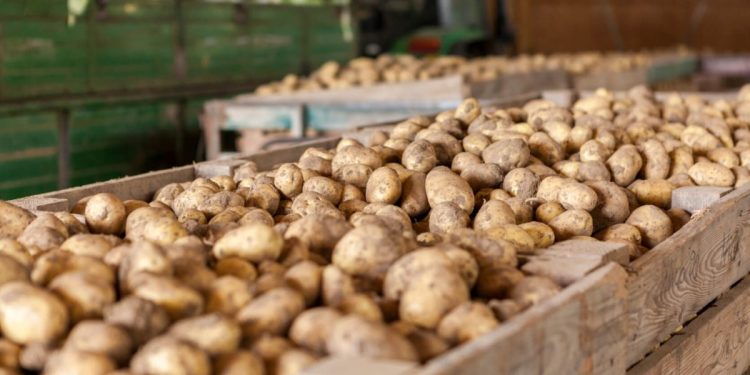#EuropeanPotatoMarket #AgriculturalChallenges #LateBlightManagement #PotatoSupplyDemand #SustainableFarming #AgriculturalInnovation
The European potato market is undergoing a significant transformation due to production deficits in key regions. This article delves into the latest data from authoritative sources, exploring the challenges faced by farmers, agronomists, agricultural engineers, and farm owners amid rising demand and late blight concerns.
The European potato market is witnessing a dramatic shift as demand soars and production struggles to keep pace. Recent data from the North-western European Potato Growers (NEPG) indicates a return to multi-year yield averages, with the European Commission raising its projections to 34.7 t/ha. Despite a 2% decrease from the previous year, this figure remains 2% above the five-year average but falls short of the 2022-2023 crop expectations.
Late blight, a persistent challenge for farmers, has emerged as a significant concern this year. The NEPG has issued warnings, urging growers to assess their fields and establish clear communication channels with buyers. Elevated blight levels, coupled with increased yields, have presented a complex scenario for farmers, particularly for varieties like Fontane and Challenger, which may face growth constraints if not managed effectively.
The Mintec Benchmark Prices for Dutch processing potatoes provide a snapshot of this evolving landscape, registering a notable decline to EUR14.75/100kg on September 19th, down by a staggering 37% year-on-year. This price shift underscores the impact of late blight and increased competition among buyers vying for limited supplies.
The potato market’s challenges are further exacerbated by production deficits in key regions, notably Poland and Southern European areas. This deficit has triggered intense rivalry among purchasers, leading to early exports as buyers scramble to secure available supplies.
In light of the evolving dynamics in the European potato market, stakeholders must remain vigilant and adaptive. Farmers, agronomists, agricultural engineers, and farm owners must collaborate closely to address challenges like late blight and production deficits. Timely communication with buyers, strategic planning, and adopting innovative agricultural practices are paramount to navigating these uncertainties successfully.
The increased competition among European buyers for available potato supplies necessitates a proactive approach, emphasizing sustainable farming methods, disease management strategies, and market intelligence. By fostering collaboration and embracing resilience, the agricultural community can overcome these challenges and sustain a thriving potato industry.







